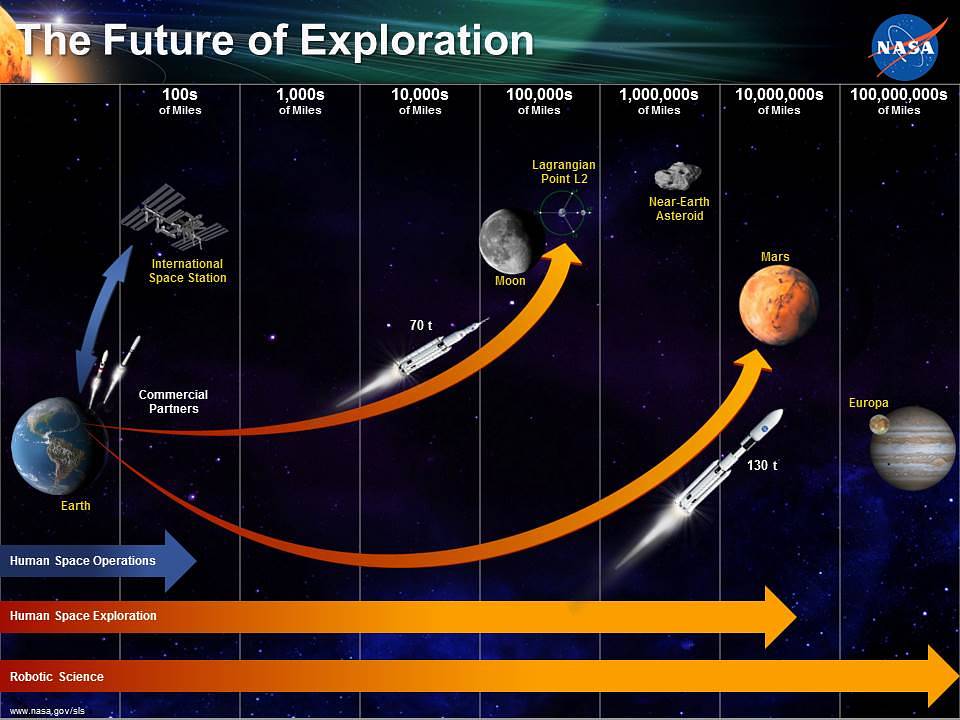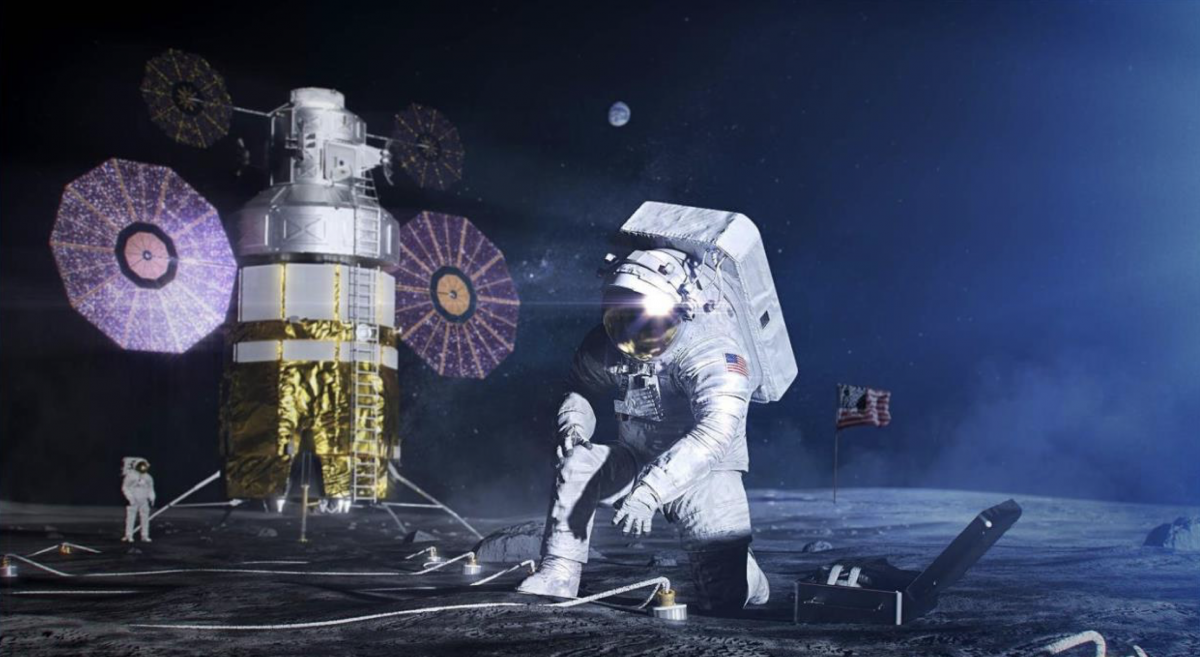The Future of Space Exploration
The future of space exploration promises exciting advancements and new frontiers. Private companies and international collaborations drive innovation and discovery.
Space exploration is evolving rapidly, fueled by technological advancements and growing interest from private companies. Nations and corporations aim to establish lunar bases and explore Mars. Space tourism is becoming a reality, offering unique experiences for civilians. Scientists are developing new propulsion systems for faster space travel.
Astrobiology research seeks to discover extraterrestrial life. Satellites and telescopes provide deeper insights into our universe. International cooperation plays a crucial role in these endeavors. The future holds potential for groundbreaking discoveries and unprecedented human achievements in space. This new era of exploration could redefine our understanding of the cosmos.
New Frontiers
The future of space exploration promises exciting new frontiers. Humans are ready to explore beyond Earth. Two important goals are Mars missions and lunar colonies.
Mars Missions
Mars is our next big target. Scientists and engineers are working hard. They want to send humans to Mars soon.
Here are some reasons why Mars is important:
- Potential for life: Mars may have signs of past life.
- Resource availability: Mars has water ice and minerals.
- Technological advancements: Mars missions push technology forward.
There are many challenges to overcome. For example, long travel time and harsh conditions. But the rewards are worth the effort.
Lunar Colonies
The Moon is our closest neighbor. Building colonies on the Moon is the first step to deep space exploration.
Some benefits of lunar colonies include:
| Benefit | Description |
|---|---|
| Proximity | The Moon is close to Earth. |
| Resource mining | The Moon has valuable resources. |
| Training ground | Perfect for training astronauts. |
Establishing lunar colonies helps us learn. We can practice building habitats and using local resources. This prepares us for Mars and beyond.

Credit: medium.com
Technological Advances
The future of space exploration is bright. One key area driving this future is technological advances. New technologies make space travel safer, faster, and more efficient.
Propulsion Systems
Modern propulsion systems are changing how we travel in space. Traditional chemical rockets are powerful but inefficient. New types of engines are in development:
- Ion Thrusters: These use electricity to accelerate ions. They are more efficient than chemical rockets.
- Nuclear Propulsion: This technology uses nuclear reactions. It provides much more power than chemical rockets.
- Solar Sails: These use sunlight for propulsion. They are very fuel-efficient and can travel long distances.
Ai In Space
AI in space is another groundbreaking advancement. AI helps astronauts and scientists make better decisions. Here are some ways AI is used:
- Robotic Exploration: AI controls robots that explore planets and moons. This reduces risks for human astronauts.
- Data Analysis: AI quickly analyzes vast amounts of data. This helps in identifying patterns and making discoveries.
- Navigation: AI improves spacecraft navigation. This ensures missions are more accurate and efficient.
These advancements in propulsion systems and AI are transforming space exploration. They make missions safer, faster, and more insightful. The future of space exploration looks exciting with these technologies.
Private Sector Involvement
The future of space exploration is rapidly evolving. Private companies are taking a leading role. Their involvement is reshaping our journey into space. These companies bring innovation and ambition. They are changing how we explore the cosmos.
Spacex Initiatives
SpaceX is a pioneer in private space exploration. Founded by Elon Musk, it aims to make space travel affordable. Their Falcon 9 rocket is reusable, reducing costs significantly. They have already launched many satellites and cargo to the ISS.
SpaceX is also working on the Starship. This spacecraft aims to carry humans to Mars. It has ambitious plans for a Mars colony. Their goal is to make life multi-planetary.
Here are some key initiatives by SpaceX:
- Falcon 9 reusable rocket
- Starship for Mars missions
- Starlink satellite internet service
Blue Origin Projects
Blue Origin is another major player in private space exploration. Founded by Jeff Bezos, it focuses on reducing the cost of access to space. Their New Shepard rocket is designed for suborbital flights. It has successfully completed many test flights.
Blue Origin is also developing the New Glenn rocket. This rocket aims to carry heavy payloads into orbit. They plan to use it for various commercial missions.
Key projects of Blue Origin include:
- New Shepard for suborbital tourism
- New Glenn for heavy payloads
- Lunar lander for moon missions
The private sector’s involvement in space exploration is crucial. It brings new ideas and faster progress. Companies like SpaceX and Blue Origin are leading the way. They are making space more accessible for everyone.
International Collaboration
The future of space exploration heavily depends on international collaboration. Countries working together can achieve more than working alone. Sharing knowledge, resources, and technology boosts progress. This cooperation leads to groundbreaking discoveries and innovations.
Joint Ventures
Joint ventures between countries are crucial for space missions. These partnerships often involve sharing costs and risks. For example, the International Space Station (ISS) is a joint venture. It involves NASA, Roscosmos, ESA, JAXA, and CSA. This collaboration has made space research more efficient and effective.
Countries also team up for specific missions. NASA and ESA collaborated on the James Webb Space Telescope. This telescope will explore deep space and provide new insights. Such joint ventures combine expertise from various nations. This leads to more successful missions and discoveries.
Global Policies
Global policies ensure fair and peaceful space exploration. Countries need to agree on rules and guidelines. These policies cover the use of space resources and space debris management. The Outer Space Treaty is an important policy. It promotes peaceful use of outer space and prevents weaponization.
New policies are also being developed. These include guidelines for lunar exploration and asteroid mining. International collaboration helps create these policies. This ensures that all countries benefit from space exploration.
Creating global policies requires input from many countries. This ensures fair and balanced rules. It also promotes trust and cooperation among nations.
| Joint Ventures | Global Policies |
|---|---|
| International Space Station (ISS) | Outer Space Treaty |
| James Webb Space Telescope | Lunar Exploration Guidelines |
| Shared Missions | Asteroid Mining Policies |
International collaboration in space exploration is essential. It leads to joint ventures and global policies. This cooperation ensures a bright future for space exploration.
Sustainable Space Travel
The future of space exploration hinges on sustainable space travel. As we reach for the stars, ensuring our methods are environmentally friendly is vital. This approach not only preserves our planet but also makes space missions more efficient and cost-effective.
Reusable Rockets
Reusable rockets are revolutionizing space travel. They significantly cut down on waste and costs. Companies like SpaceX have pioneered the development of these rockets. Their Falcon 9 rocket, for example, can be launched multiple times.
This innovation reduces the need for new materials. It also minimizes the carbon footprint of each launch. Reusable rockets are a game-changer for space missions.
| Rocket | Company | Reusability |
|---|---|---|
| Falcon 9 | SpaceX | Multiple launches |
| New Shepard | Blue Origin | Multiple landings |
Eco-friendly Practices
Adopting eco-friendly practices in space travel is essential. Using green propellants is one method. These fuels are less toxic and produce fewer pollutants. NASA is researching these alternatives for future missions.
Another practice is minimizing space debris. Space agencies track and manage debris to prevent collisions. This keeps the space environment clean and safe. Additionally, solar energy is being harnessed for power. Solar panels on spacecraft reduce the need for traditional fuel.
- Green propellants
- Debris management
- Solar energy
These practices pave the way for a sustainable future in space exploration.

Credit: www.nasa.gov
Challenges Ahead
The future of space exploration holds immense promise. Yet, it presents numerous challenges. These hurdles must be addressed to ensure safe and successful missions. Two significant challenges are space debris and radiation protection.
Space Debris
Space debris refers to the clutter in Earth’s orbit. This includes defunct satellites, spent rocket stages, and fragments from disintegration. The increasing amount of debris poses a threat to active spacecraft. Collisions with space debris can cause severe damage.
Efforts are underway to manage and mitigate space debris. Organizations track debris to avoid collisions. Strategies include:
- Developing debris removal technologies
- Implementing stricter regulations on satellite launches
- Designing spacecraft with end-of-life disposal plans
Addressing space debris is vital for the safety of future missions.
Radiation Protection
Space radiation poses a significant risk to astronauts. Unlike Earth, space lacks an atmosphere to block harmful radiation. Long-term exposure can lead to serious health issues.
Protecting astronauts from radiation involves several approaches. These include:
- Developing advanced shielding materials
- Creating radiation-safe habitats
- Planning missions to minimize exposure
Researchers are exploring innovative solutions to enhance radiation protection. Ensuring astronaut safety is crucial for the success of deep space missions.
Space Tourism
Space tourism is no longer a distant dream. It is becoming a reality. Private companies are making space travel accessible. The future of space exploration includes exciting possibilities for everyone.
Commercial Flights
Commercial space flights are the first step towards space tourism. Companies like SpaceX and Blue Origin are leading the way. They offer seats on their spacecraft to the public. These flights take passengers to the edge of space. They experience weightlessness and see Earth from above.
Ticket prices for these flights are high. But they are expected to become more affordable. The goal is to make space travel as common as air travel. Safety is a top priority for these companies. They use advanced technology to ensure a safe journey.
Space Hotels
Space hotels are the next big thing in space tourism. Imagine staying in a hotel orbiting Earth. Companies are already working on this concept. These hotels will offer unique experiences. Guests can enjoy stunning views of Earth and space.
Rooms in space hotels will be different from Earth hotels. They need to be designed for zero gravity. Basic amenities like food and water will be provided. The goal is to make the stay as comfortable as possible.
Space hotels will also offer activities. Guests can participate in space walks and scientific experiments. They can also enjoy virtual reality experiences. These activities will make the stay more exciting.
Space tourism is an exciting part of the future of space exploration. It opens new possibilities for travel and adventure. The dream of visiting space is becoming a reality for everyone.
Impact On Earth
The future of space exploration holds immense potential for Earth. It promises breakthroughs in science, significant economic gains, and benefits for daily life.
Scientific Discoveries
Space exploration leads to amazing scientific discoveries. It helps us understand our universe better. By studying other planets, we learn about Earth’s past and future.
Space missions have already discovered water on Mars. This finding is crucial for future human missions. It also helps us understand if life once existed there.
Another exciting area is the study of asteroids. These space rocks can tell us about the early solar system. Scientists believe they hold clues to the origin of life on Earth.
Space telescopes like the Hubble have revolutionized our knowledge. They allow us to see distant galaxies and understand cosmic events. Such insights are not possible from Earth alone.
Space research also advances technology and medicine. Experiments in microgravity provide new insights into diseases. This leads to better treatments and cures on Earth.
Economic Benefits
Space exploration has significant economic benefits. It creates jobs and stimulates industries. Thousands of engineers, scientists, and technicians find work in this field.
The space industry also drives innovation. Technologies developed for space often have Earth applications. For example, satellite technology aids in weather forecasting and communication.
Investing in space can lead to resource discovery. Asteroids may have precious metals and minerals. Mining these could meet Earth’s growing demands.
Space tourism is becoming a reality. Companies are planning to take people on space trips. This new industry could generate billions of dollars.
Below is a table summarizing the economic benefits:
| Benefit | Description |
|---|---|
| Job Creation | Thousands of new jobs in various sectors |
| Innovation | New technologies with Earth applications |
| Resource Discovery | Access to valuable space minerals |
| Space Tourism | Potential billion-dollar industry |
Space exploration is not just about science and adventure. It also brings tangible benefits to our economy and daily life.

Credit: www.linkedin.com
Conclusion
Space exploration holds endless possibilities for humanity’s future. Technological advancements drive us closer to new discoveries. The potential benefits are immense, from resource acquisition to scientific breakthroughs. As we invest in space, we unlock new opportunities for growth. The future of space exploration promises to be both exciting and transformative for all of humanity.






